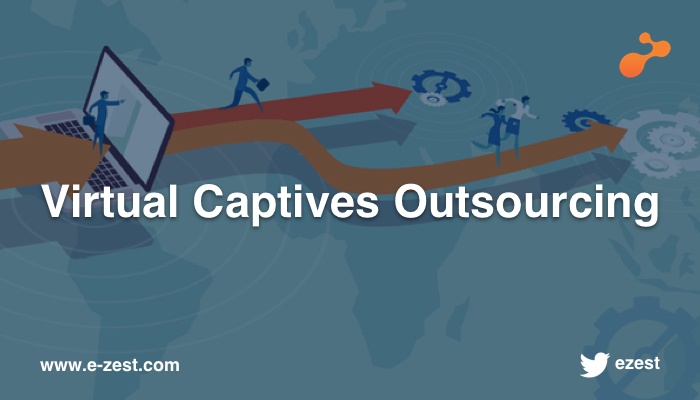And when we say m-commerce, this is what it implies mobile commerce or m-commerce — a monetary transaction completed using a mobile device to buy any form of product or service. Simply put, it is an advancement of e-commerce. It is helping existing businesses grow — be it booking tickets and processing your boarding passes online or mobile banking.
Yes, mobile commerce is different, and it is a natural progression of e-commerce. They are nearly identical on some levels, but there are also important differences between the two.
Why does m-commerce matter?
Out of the total e-commerce sales in 2017, m-commerce sales accounted for 34.5%, and that number by 2021, is expected to account for 54%.
That suggests your website and online store be already accessible on mobile devices by now. However, that doesn’t yet mean your business might be ready for mobile commerce. It is indicated that only 12% of the consumers find shopping on the mobile convenient. That shows a lot of room for improvement.
Our mobile usage is influencing our buying decisions even when we are finding comfort accessing a brick and mortar store.
M-commerce benefits
While we have so many platforms to buy, there could be possible benefits of buying it through mobile. Let's look at them individually:
- Enhanced customer experience
While e-commerce made shopping more convenient, it gave consumers a wider variety of products, more competitive pricing at their doorsteps. With mobile commerce, they still have all these benefits, and now they don’t even need a computer.
They can shop from any place, any time without the hassle of carrying the big device.
Just like e-commerce, companies like Amazon, Ikea are using Augmented Reality, to enhance their mobile commerce business. Adding chatbots is a big differentiator, making it easier for businesses to interact with their customers.
- Tremendous growth potential
Marketers expect global e-commerce sales to reach about $4 trillion by 2020, representing 15% of total retail sales.
And its contribution to m-commerce will also continue to grow, as more online retailers see more than 50% of traffic coming from mobile devices.
Great news for retailers who are investing more in mobile commerce, they can ultimately expect a higher conversion rate and ROI.
- The omni-channel experience
An omni-channel platform is about being where your customers are and making it possible for them to buy what they want.
An omni-channel experience is selling both online and offline — likely also selling through common multiple online channels like Amazon, Flipkart, Facebook, etc.
Such platforms let retailers list their products wherever consumers are already spending their time which is known as contextual commerce, a more strategic take on the overarching omni-channel term.
- Payment options to choose from
With new-age mobile payment solutions, it is now possible to offer customers a truly diverse range of payment options.
m-commerce has seen an exponential boost with the emergence of mobile wallets, which is making one-click checkouts possible in more than one store. Customers don't have to manually enter their credit card details and shipping details the first time they shop at a new online store.
- Improved sales process
With available mobile options, customers have a greater role in deciding how and when to interact—and that helps retailers to sell without being very aggressive.
Metrics to look for while using mobile commerce
As a retailer, you need to track some metrics that will not only boost your customer acquisition but also your customer engagement and outcome.
Mobile to cart rate: By monitoring your mobile add to cart rate, you get to know if your customers are actually taking action. For example, if you notice that a certain group of customers from a geographical area tend to abandon your cart, then you need to check the ‘add to cart’ process. It can let you evaluate what are the difficulties in adding some products to cart.
Average order value: This is an actionable and realistic metric you should take very seriously. If you track your average order value over a period and compare the results with your conversion rate, then your sales volume won’t be a problem. It helps you evaluate the not so selling products and take an action on them.
Tracking total mobile traffic: There is no way you can improve your m-commerce without knowing the number of mobile traffic that hits your site. The aim is to help you make marketing decisions and have a positive output. Since there’s been an increase in m-commerce traffic globally, monitoring yours too is important.
Mobile cart conversion rate: Tracking your cart conversion rate will most likely help you boost your marketing ROI. If you gradually discover poor mobile cart conversion rate, then you need to review your checkout process. If the process is too long, then reducing it to save your customers time will definitely increase your conversion rate.
SMS subscription reporting: And how can you ignore your SMS subscribers, they’re most likely to purchase your product. So, it’s equally important to check and grow your SMS database since most of your visitors will likely opt-in to receive a special mobile alert.
Average page load time: This is also a very important aspect you can’t ignore. Your mobile conversion rate depends highly on your average page load time. The slower your page’s load time, the greater number of churns you’re likely to experience.
So, while this shift and evolution is talking more concrete shape, your business should attempt meet your customers where they are. Don’t make them wait. With more than half of the world’s population already using mobile phones, it’s a clear indication that developing, adopting and creating a mobile commerce strategy is the way to go.









